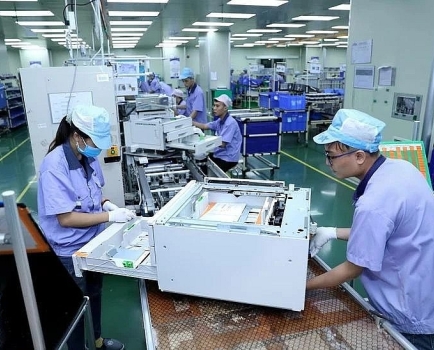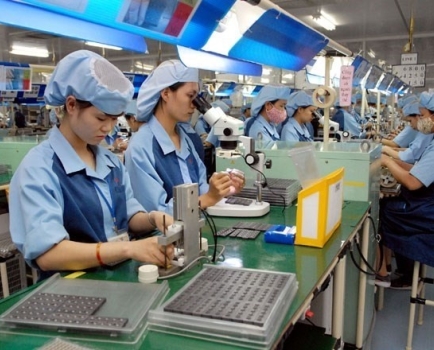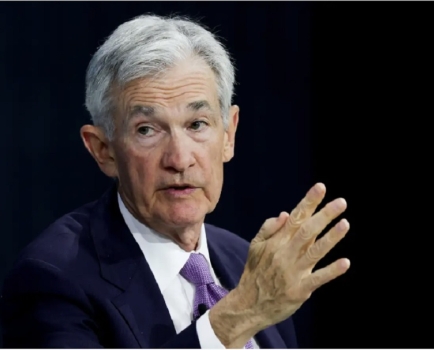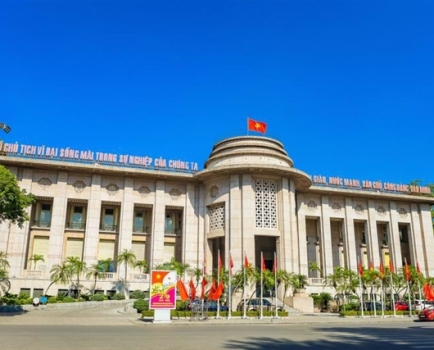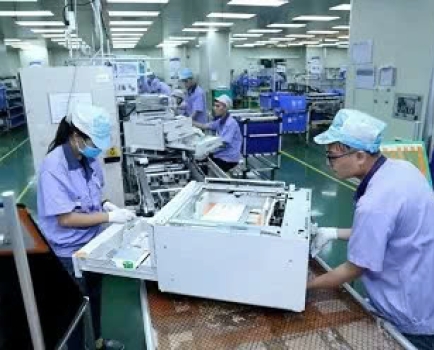Still difficult for foreigners to buy housing in Vietnam
Wed, 23 Oct 2019 14:23:00 | Print | Email Share:
Many foreigners are keen to buy high-end apartments in Vietnam but the process is anything but straightforward.

Mr. Harry Byrne, an Indian manager of a hotel in Hanoi, lives in an apartment provided by his employer even though he has been working here since 2015.
He plans to buy an apartment in the future, as the experience of two his friends has been that valuations and return on investment are quite lucrative.
According to Mr. Stephen Wyatt, Country Head of JLL Vietnam, since the government issued a law in 2015 that allows foreigners to buy and own houses, many international customers have come seeking opportunities and invested in apartments.
Most property consultants, however, say there are no official figures on the number of individual foreigners owning properties in Hanoi or around the country.
Attractive proposition
High-end and luxury apartment projects in major cities such as Hanoi and Ho Chi Minh City do indeed attract foreigners. According to CBRE, 70 per cent of all properties bought by foreigners are in the two cities. Of some 5,000 apartments for sale in the first quarter of 2019 in Ho Chi Minh City, high-end and luxury are the two segments of most interest to foreigners.
As a major developer, Keppel Land has high-end residential projects such as Estella Heights, Empire City, Palm City, and Riviera Point.
Mr. Linson Lim, President of Keppel Land Vietnam, told VET that since the relaxation of foreign home ownership took effect in July 2015, they have seen more interest among foreign buyers, especially those from Singapore, Hong Kong (China), Taiwan (China), South Korea, and China. “Foreigners generally make up about 20-30 per cent of our home sales in each project,” he said.
When he does take the plunge, Mr. Byrne plans to buy a high-end apartment. “Foreigners tend to look at high-end real estate in Vietnam as the cost of living is more reasonable and features and facilities are more convenient,” he said. “Most upscale apartments provide professional services, helping us avoid the hassles of maintaining the apartment.”
Mr. John Kim, a Hong Kong businessman, has come to Ho Chi Minh City many times seeking a large high-end apartment in a prime location and with super luxurious furnishings. He has studied the rate of return for rentals in the center of Ho Chi Minh City and found it is 4-5 per cent, while in Hong Kong it is only 1-2 per cent.
JLL’s quarterly report released in July noted that the average price stood at $2,009 per sq m in Ho Chi Minh City in the second quarter, while the high-end price rose 52.9 per cent year-on-year to $4,569 per sq m.
For foreigners planning to invest in Hanoi, CBRE’s quarterly report released in July showed that in terms of pricing, sales prices in the primary market in the second quarter averaged $1,337 per sq m, but noticeably, the high-end segment saw an average of $2,345 per sq m - the highest in the segment for five years.
Similarly, JLL observed that an increasing number of Chinese customers are buying residential properties in Vietnam, because high-end apartments are an attractive investment with relatively low prices compared to China, Taiwan (China), Hong Kong (China), Singapore, Japan, and South Korea.
“Chinese customers often compare real estate prices in Ho Chi Minh City to those in Shanghai, so expect Vietnam’s market will grow in the same positive way,” said Mr. Wyatt. “Most foreigners who buy high-end apartments in Vietnam hope that after a while the price will increase.”
Limitations and openness
But there are hurdles to be overcome in completing the necessary legal procedures. Mr. Byrne said the challenges faced by foreigners in renting or buying an apartment is that all documents are usually in Vietnamese.
“This is an inconvenience as we are signing a legal contract in a language we don’t understand, so this makes myself and other foreigners very uncomfortable, as signing is based simply on trust,” he added. “It’s not an easy task to purchase a property.”
Mr. Wyatt pointed out that many residential projects in Ho Chi Minh City reported great interest from foreign buyers but there were no available units for them due to the legal limits.
“The number of foreign buyers is in the thousands, versus a few hundred before the law was introduced, but the issuance of red books continues to be a challenge for foreign buyers, with many international owners reportedly struggling to secure a certificate of ownership for their property,” he said.
Meanwhile, Mr. Greg Harry, an American businessman in Hanoi with an apartment in Nam Tu Liem district, had a bad experience when deciding to buy.
“I paid considerably more than my neighbors, about 125 per cent of the normal rate by my understanding, and I also bore all costs associated with maintenance, while this would not be the case in the US,” he said.
“I think stronger regulations and oversight by local authorities would introduce more fairness into the process, such as there being a legal body I could report to over the fact that I am paying more than my neighbors.”
Finally, he decided to ask his Vietnamese wife to act as his representative in signing the paperwork to complete the necessary legal procedures.
Regulations on conditions for foreigners to buy houses and apartments in Vietnam introduced this year allow them to own no more than 30 per cent of the number of apartments in an apartment block.
The government has also permitted foreigners to own residential housing for the last ten years.
The country first opened up its residential housing market to certain foreigners by way of a five-year pilot program enacted under the National Assembly’s Resolution No. 19/2008/QH12.
Foreigners can access rights such as a red book for the apartment for 50 years and would be entitled to ownership rights, including the right to use the property as collateral.
Many analysts have said that in the Law on Housing, foreigners are not restricted to a specific category, are able to own more than one apartment, and only need a valid entry visa to make a purchase. They are also allowed to lease out the apartment.
Mr. Le Hoang Chau, Chairman of the Ho Chi Minh City Real Estate Association, said that since 2015, when the government first permitted foreigners to buy houses, the legal framework has been revised to create more favorable conditions.
In HSBC’s Expat 2019 Global Report released in July, Vietnam was named in the top 10 countries for expatriate workers.
The report noted when they first moved in, 40 per cent of foreign experts in Vietnam planned to stay longer than five years and this number increased to 60 per cent after they lived and worked a short time in the country.
“Vietnam has become the most attractive emerging economy in ASEAN, with robust economic growth over the past few years and many open policies, so the real estate market will remain an attractive investment channel for foreigners,” Mr. Chau believes.
By: VN Economic Times/VOV
---------------------------------------------
Same category News :



